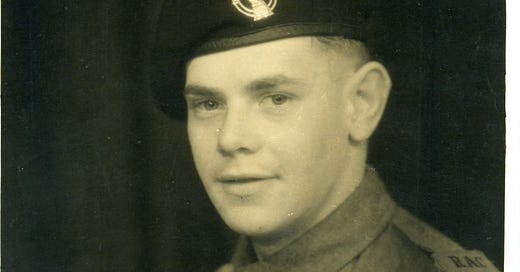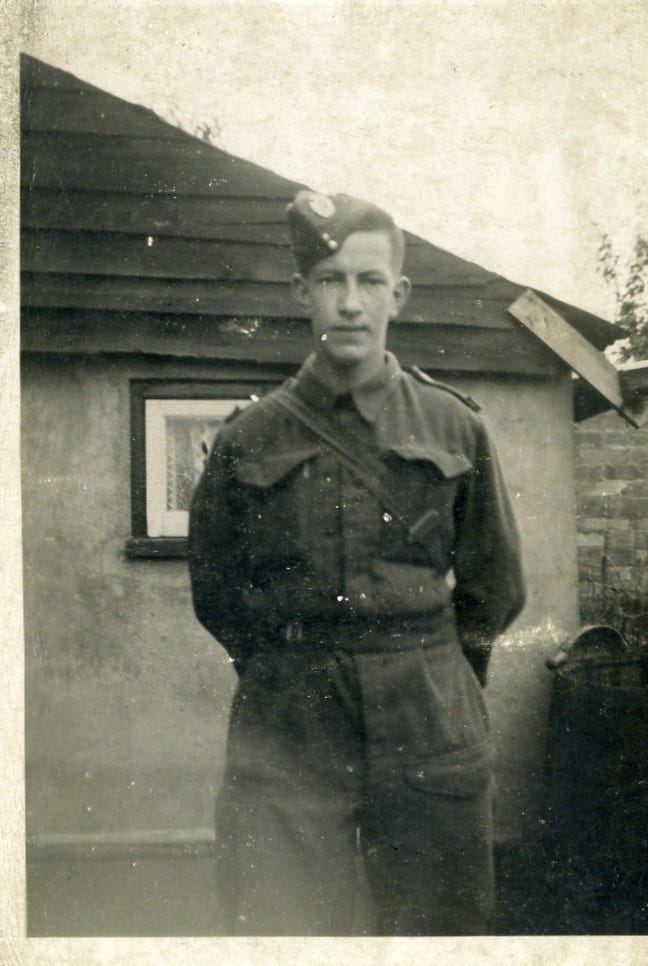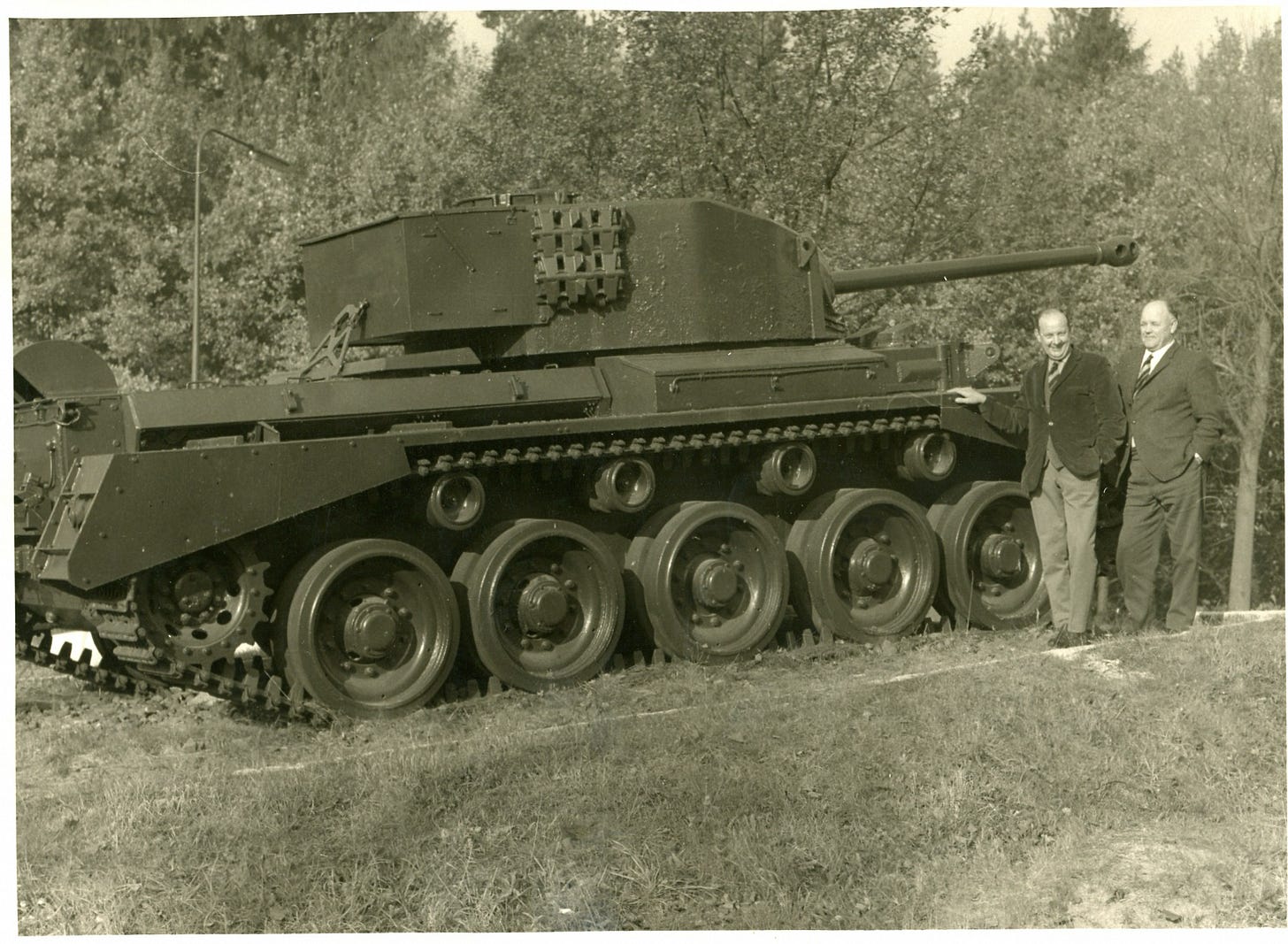I originally wrote this article for the 80th anniversary of D-Day (06/06/24) - republishing for Remembrance Day.
Whenever I think about the members of my family who took part in the wars of the 20th century, I’m confronted with conflicting emotions. Immense pride and sadness.
I’m proud of them for having been there and I’m sad that they had to be.
My grandfather, Derek Wayman, and my great uncle, Frank Wayman, both took part in D-Day.
Like their father before them, Rol Wayman (who survived being gassed in the trenches of WWI), they left behind their peaceful village life, took up arms, crossed the channel and went to war on the continent.
My grandmother’s brother, Owen Braysher, lost his life at only 20 years old, whilst working in a bomb disposal unit - a loss my granny never recovered from.
Granny, Gladys Wayman (nee Braysher), also took part in the war effort as a nurse.
10 months after D-Day, Grandad took part in the liberation of the Bergen-Belsen concentration camp (where Anne Frank had died two/three months prior to the British liberation). If you’ve seen pictures from the liberation of Bergen-Belsen, or any other death camp, then you’ll know that my grandfather, shortly after turning 21, entered a living hell.
Unlike other concentration camps, Bergen-Belsen wasn’t a factory-style Nazi death camp. It did not have gas chambers. There was none of the usual cold, Nazi efficiency.
Instead, it was an overcrowded camp of neglect.
When the British arrived, they were met by 13,000 starved, unburied corpses strewn across the camp, with 60,000 malnourished, diseased prisoners ‘living’ amongst them.
To get there, Grandad had to cross the channel, survive D-Day and then endure months in his Churchill tank travelling through hostile Nazi Europe, covering around 600 miles through France, Belgium and Germany (for reference, D-Day was on the 6th June 1944, whilst the liberation of Bergen-Belsen took place on 15th April 1945).
He spent his 21st birthday in that tank, snowed in in the Ardennes, during a bitterly cold winter in October 1944. Mum says he rarely ever spoke about the war, but once commented (c.50 years ago) that it was so cold that your pee was frozen before it reached the ground.
As he didn’t speak about the war, that is all we know of his experiences during that time. His tank remains in Germany, on a hill above Bergen-Belsen.
Both Grandad and my great uncle, Frank, returned from the war and went back to civilian life in their village of Over in Cambridgeshire; Grandad was a carpenter and Uncle Frank was a fruit farmer.
Whilst Grandad didn’t speak of the war, Uncle Frank was incredibly proud of being a Grenadier Guard and remained so until the end of his days.
I’m proud that the blood of these men runs through my veins.
I’m proud that they, and millions of other British men and women, mobilised against a truly evil force.
I’m proud to be British and to be a descendent of this great island nation’s greatest generation.
On this day, I remember them all.
And I hope to honour their sacrifices sufficiently by living a good and peaceful life. A life that millions of men, women and children - my great uncle, Owen, included - never got to experience.
Lest we forget.
A special shout out to my mother, Carolyn Redmayne, is required.
Without her work as a family and local historian, many voices and stories of ordinary folk would’ve already be forgotten and consigned to history.
By remembering those that came before us we keep their memories alive.
Thanks for reading,
Tom Redmayne
Chartered Financial Planner
To support the publication and receive new articles directly to your inbox, please subscribe:










Thoroughly enjoying reading through your content Tom, it’s brilliant!
Really interesting Tom...